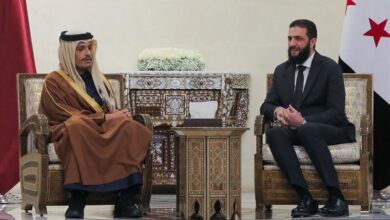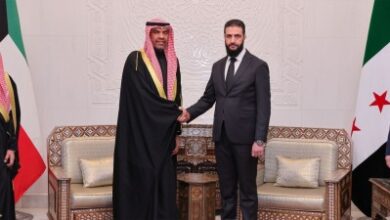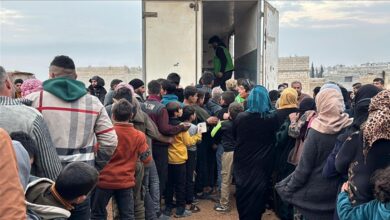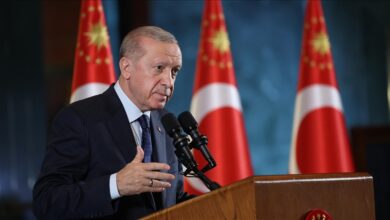
Volkan Bozkir calls for the UN Security Council to extend the mechanism for bringing aid into Syria
The President of the United Nations General Assembly Volkan Bozkir called on the UN Security Council to extend the mechanism for cross-border humanitarian aid to Syria, which may witness Russian opposition, as happened last year.
This came in a speech by Bozkir at the General Assembly meeting at the United Nations headquarters in New York, about the situation in Syria and the implementation of UN Security Council Resolution 2254 and the situation of human rights in Syria.
“In the coming months, the Security Council will discuss extending the mechanism for the delivery of cross-border aid, and I urge Council members to authorize the extension of this humanitarian mechanism,” Bozkir said.
He added, “Nevertheless, humanitarian aid alone is not a solution to the Syrian crisis. The solution lies in a political settlement in accordance with Security Council Resolution 2254, and this is the best hope for ensuring peace and stability in Syria, and protecting the human rights of the Syrian people.”
And he considered extending that mechanism “the only way to ensure the rapid, safe and unimpeded access of aid to all people in need, in line with basic humanitarian principles.”
Bozkir warned of “the security risks of the Syrian crisis throughout the region,” calling on the international community to hold accountable the perpetrators of human rights violations and international humanitarian law crimes in Syria during the past ten years of the conflict.
He added, “We cannot in good conscience turn our backs on the Syrian people. Therefore, I ask you, in line with existing resolutions and the spirit of the United Nations Charter, to support the improvement of human rights conditions in Syria, and unimpeded access to humanitarian aid to the needy.”
And last Monday, US Secretary of State Anthony Blinken called on the UN Security Council to reopen border crossings outside the control of the Assad regime to UN aid in the northeast and northwest of the country, after it was reduced last year to a single crossing under Russian pressure in the Security Council.
The UN mechanism for cross-border entry into Syria was established in 2014, and allows aid to be delivered to Syrians without the approval of the Assad regime.




